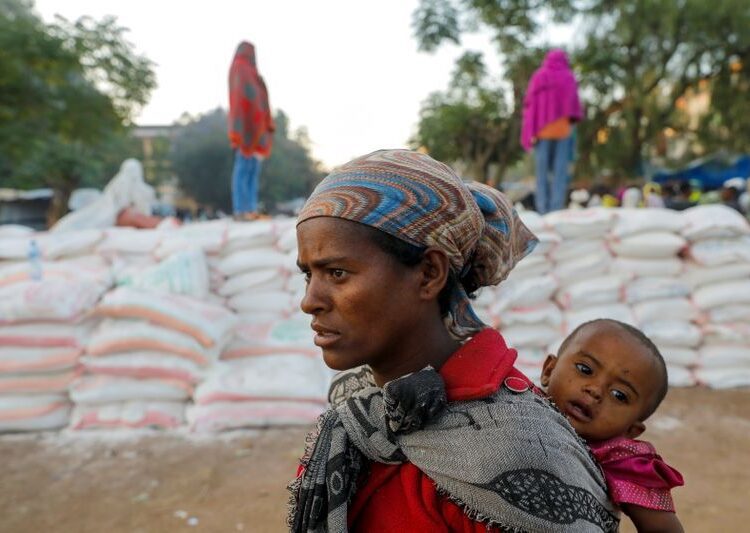WUKRO/GENEVA – The United Nations Children’s Emergency Fund (UNICEF) said on Friday that more than 100,000 children in Ethiopia’s northern region of Tigray could suffer life-threatening malnutrition in the next 12 months, a 10-fold increase to normal numbers. UNICEF spokesperson Marixie Mercado said that one-in-two pregnant and breastfeeding women screened in Tigray were acutely malnourished.
“Our worst fears about the health and well-being of children… are being confirmed,” she told a briefing in Geneva.
Spokespeople for the prime minister and a government task force on Tigray – where fighting between rebellious regional and federal forces have continued since November – did not immediately respond to requests for comment on UNICEF’s statement.
Babies like 20-month-old Aammanuel Merhawi are suffering the most. He is a third below normal weight for his age. His feverish eyes glisten and his ribs are visible as he heaves, vomiting supplementary food fed through a nasal tube. All are signs of severe malnutrition.
“My milk dried up,” his mother, Brkti Gebrehiwot, told Reuters at Wukro General Hospital in northern Tigray on July 11.
Aid agencies say they are about to run out of the formula used to treat 4,000 severely malnourished children every month.
At least three children have died in Wukro hospital since February, nurse Tsehaynesh Gebrehiwot said.
She provided their medical records: four-month-old Awet Gebreslassie weighed 2.6 kilogrammes (5.7 lb), a third of normal weight; one-year-old Robel Gebrezgiher weighed 2 kgs, less than a quarter of normal weight; and Kisanet Hogus, also a year old, weighed 5 kgs – just over half of normal weight.
All died within days of admission.
In Adigrat General Hospital further north, Reuters saw medical records confirming the death of three more malnourished children.
Doctors in both hospitals said they saw between four to 10 severely malnourished children monthly before the conflict erupted in November. Now numbers have more than doubled.
The UN says that around 400,000 people are living in famine conditions in Tigray, and more than 90 per cent of the population needs emergency food aid.
In a statement on Thursday evening, the Ethiopian government blamed Tigray regional forces for blocking aid and said it had stockpiled reserve wheat in the region. It gave no details on the stockpile’s location or plans for distribution.
The TPLF was unavailable for comment but has previously said it welcomes aid.
The UN says Tigray needs 100 trucks of food daily to prevent mass starvation; only one 50-truck convoy has gotten through in the past month.
Meanwhile, Washington is sending USAID Administrator Samantha Power to Ethiopia Saturday while warning of punitive measures if aid is unable to reach the Tigray region, where hundreds of thousands of people are believed to be experiencing famine.
A statement said Power will travel to Sudan and Ethiopia from Saturday to Wednesday in a fresh diplomatic push by President Joe Biden’s administration amid fears of ethnic cleansing in the region and hopes for negotiations between the Ethiopian government and Tigrayan forces to resolve the conflict.
Power is due to meet Ethiopia’s national security adviser and hopes to meet Abiy Ahmed, a senior USAID official said. Washington hopes she will secure unhindered humanitarian access to Tigray.
“There will be I think continued punitive measures as long as we are unable to access those populations,” the official said.






Discussion about this post